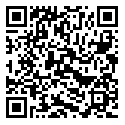In my previous article I looked at the basics of setting up and using Twitter to support your business. Here I’m offering up eight tasty tips that have been gleaned from Twitter pros, the interweb and business notables, all guaranteed to help you build your business presence with this tool.
1. Show yourself
Include a picture of you or your business, be it a logo or a shot of your staff. People like to see other people, it forms an instant connection and, if they like the sight of you, they are more likely to get in touch. Put some human elements into your profile and, if you have staff, include information about them too. Make it about the people and a personal presence so potential customers feel as if you’d care about them and their needs.
2. Tweet Wisely
Talk about things that interest you as a person and as a business, consider including stories about your staff and other people that work for you or with you. Avoid going into excessive detail about your products or services at every available opportunity. This will potentially put off even your most avid fans as they will tire of being sold to all the time. Make your product updates interesting and, if possible, link them to current events and interesting information that makes them relevant and useful.
3. Ask
Involve your followers. Ask them questions, ask their opinions and ask for their stories. Let them feel that their thoughts and lives are important to you and your business. Consider ReTweeting their thoughts and stories, share their information and include them wherever possible.
4. Reply with care
When I say this I don’t mean that you need to consider every word you type, although that is quite a good idea, I mean that you shouldn’t feel obliged to answer and read every single tweet you receive. Sometimes the list will be endless and the amount of time you’ll need to invest in it would be impossible. Instead, skim through the updates and answer a chosen few, especially if a common question keeps cropping up.
5. Direct approach
Direct messaging is extremely useful for situations where you don’t feel that the entire Twitter world needs to hear what’s going on. When you have a very disgruntled customer then a direct message conversation will limit the damage. Also, one-to-one conversations with clients can build relationships and brand loyalty – not all the time, just every now and again in response to a tweet or an issue.
6. Two sides to the story
Like many business tools, Twitter has its pros and its cons. Take a read on Chris Brogan’s site for a great list of negative things that people are likely to throw at you, and positive things you can throw back. This list is a good place to go whenever you wonder whether you’re doing the right thing with your time on Twitter.
7. Blog
Yes, if you are a business you’re going to need a blog. You don’t need to write 1000 word epics every day but you should use it as a place to put your voice to your products and to promote your latest deals or deliverables. This is where you can talk about your company as much as you like without worrying about shoving it down people’s throats. Then, take TinyURL, shorten your link and post it on Twitter. There, they can decide whether or not they want to read it and you have effectively driven traffic to your site.
8. Basic rules
There are some basic Twitter rules that you have to follow if you want to develop a positive presence. Break these too often and people will stop following you. Don’t overTweet, don’t sell sell sell your stuff, talk about interesting things outside of your business, don’t overfollow people or you may be labelled as a spammer and make it worthwhile for people to follow you.
In our next edition of business and Twitter I’ll be looking at even more ideas on how to stretch those Twitter muscles in business.


Mrs Mario
Mrs.Mario is a freelance journalist who loves to write about anything and everything. She accidentally fell into the cauldron of technology about eight years ago and has been slowly simmering in there ever since. She’s a geek but still has tons to learn about the wonderful world of technology. She also suffers from a rare disease known as “need to game” that demands it’s sufferers play at least one videogame a week. So far, she’s been coping with her ailment admirably.